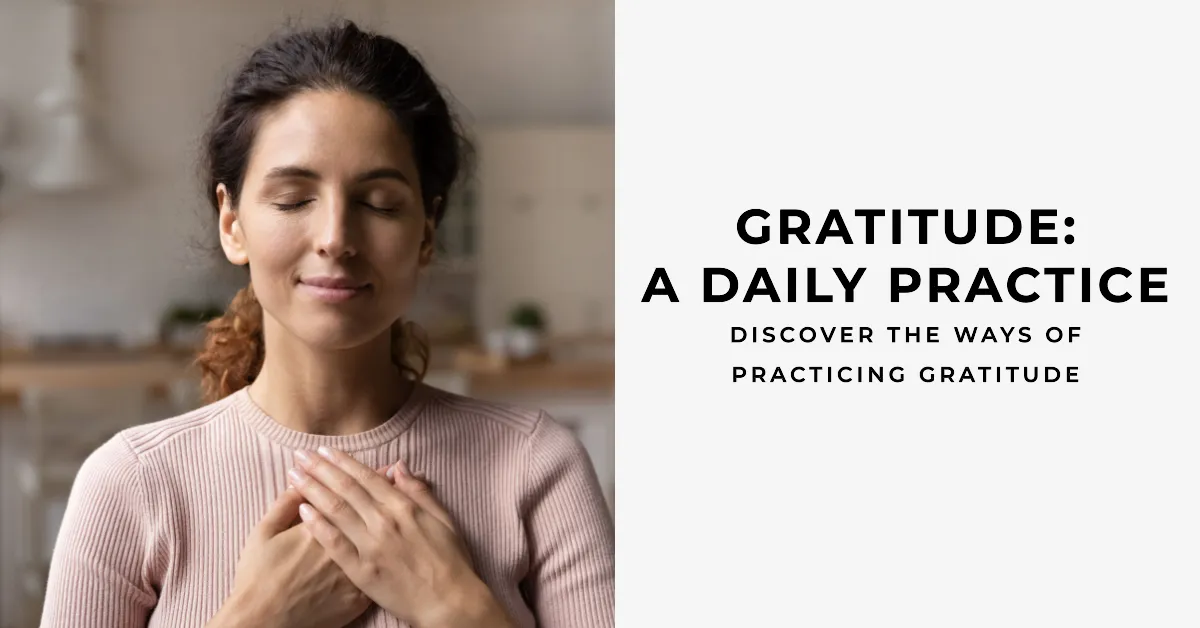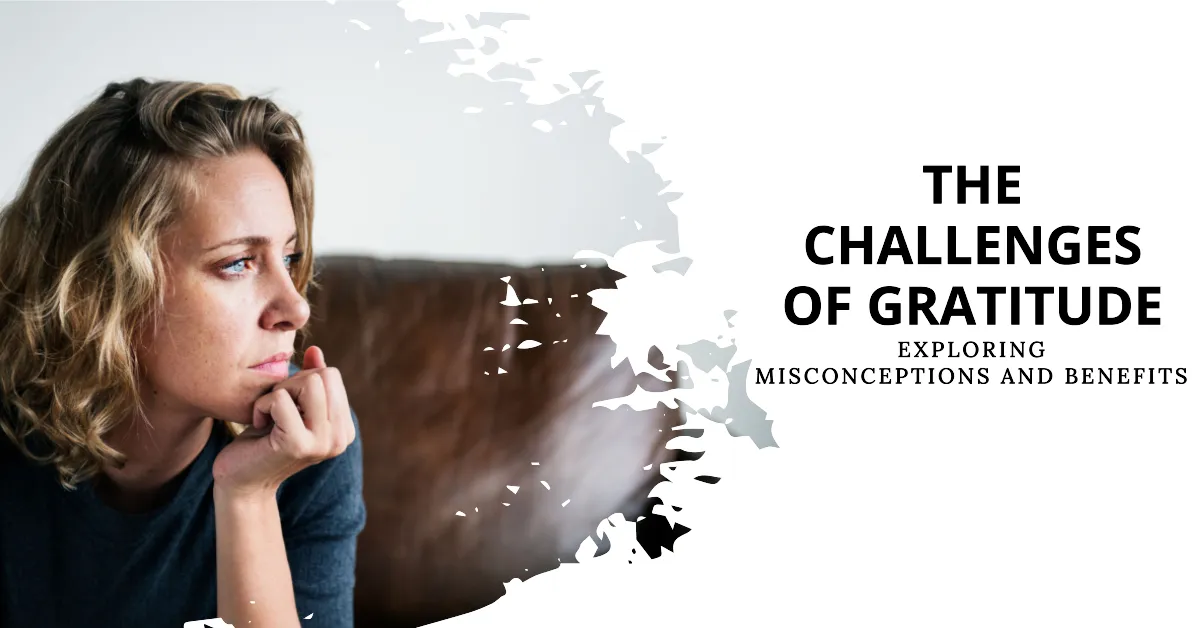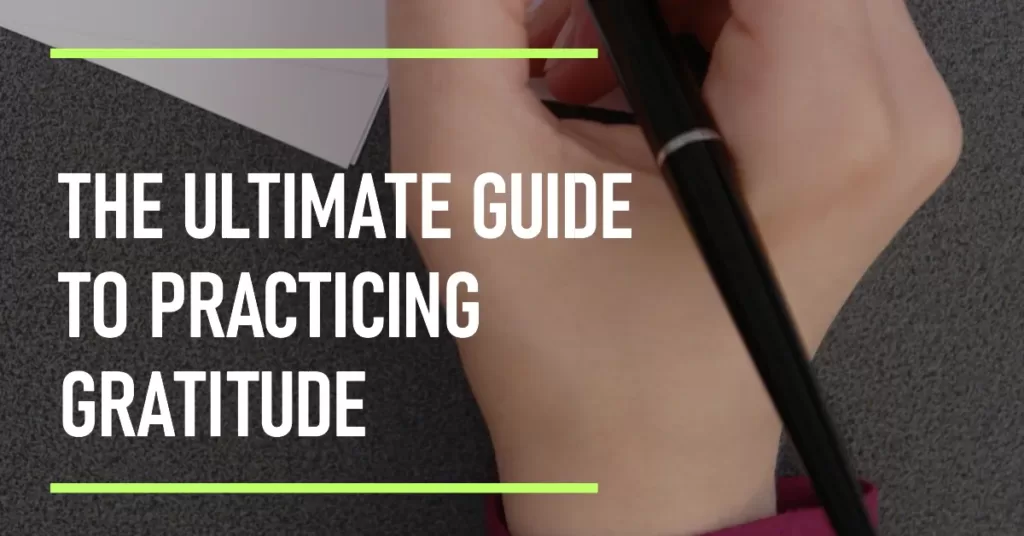You’ve heard it before, haven’t you? Gratitude can change your life. It’s not just a cliché, it’s scientifically proven to boost happiness, foster generosity, and even help you handle hard times. But how do you start? This guide’s for you. It’s time to unlock the power of gratitude, and we’ll show you how. Let’s embark on this journey together, and transform your life one ‘thank you’ at a time.
Table of Contents
Key Takeaways
- Gratitude contributes to positive affect, subjective wellbeing, and serves as a buffer against depression;
- Practicing gratitude through exercises like gratitude journaling and gratitude visits has been shown to have positive effects on mental health and wellbeing;
- Gratitude is a part of several world religions and is regarded as a universal religious sentiment.
Why is Practicing Gratitude Important?

In this discussion, you’re going to explore the profound impact of a simple yet powerful emotion: gratitude. You’ll delve into the science of gratitude and its relation to positive psychology, learning how incorporating gratitude interventions can be transformative and genuinely improve your life. It’s fascinating to see how expressing gratitude can ignite positive emotions, enhance your overall wellbeing, and pave the way to a happier, more fulfilled life.
The Science of Gratitude and Positive Psychology
There’s a strong link between gratitude and positive psychology, with studies showing that being grateful can enhance happiness and reduce stress. You can explore this link in your own life, as practicing gratitude may help you find your own path to joy and serenity. You see, the science of gratitude and positive psychology offers you a powerful tool to shape your mindset and your life. It’s about acknowledging and appreciating the good, the simple, the beautiful around you. By focusing on the positives, you’re more likely to foster a positive outlook, which in turn, reduces stress and boosts happiness. So, if you’re looking for freedom from negativity, stress, and dissatisfaction, look no further than how to practice gratitude: the ultimate guide. Embrace gratitude, and shape your reality.
How Gratitude Interventions Can Change Your Life?
Gratitude interventions can truly transform your life, making you happier, less stressed, and more satisfied. Think about it. What if you could shift your perspective, see the silver lining, and appreciate the little things? That’s what gratitude interventions can do for you. By learning to practice gratitude daily, you’ll change your life in subtle yet powerful ways. You’ll start to feel freer, more content, and genuinely happier. It’s not about ignoring life’s challenges. It’s about embracing them with a thankful heart, knowing they’re shaping you into a stronger person. You’re not just surviving; you’re thriving. And it all begins with gratitude. So, are you ready to start your gratitude journey? Believe in the power of gratitude interventions. They can change your life.
How Gratitude Helps Spark Positive Emotion?
You’ll find that embracing thankfulness often sparks positive emotions, making you feel happier and more content with your life. Cultivating gratitude isn’t just a nice thing to do; it’s a path to freedom. Gratitude helps spark positive emotion, which can set you free from negativity, stress, and anxiety. The ultimate guide on how to practice gratitude? Start by recognizing the good in your life. Acknowledge those who’ve helped you, and express your thanks to them. Make it a daily habit, perhaps by keeping a gratitude journal. You’ll soon discover that it’s not just about saying ‘thank you’, but truly feeling it. This practice can transform your perspective, your relationships, and your overall wellbeing. Remember, gratitude isn’t a destination, it’s a journey. Embrace it, and watch how it positively changes your life.
Gratitude Can Help Improve Your Wellbeing and Lead to Happier Life
By acknowledging and appreciating the good in your life, it’s possible to greatly improve your wellbeing and lead a happier existence. You might question how to achieve this. The answer is simple: practice gratitude. This doesn’t mean you have to ignore life’s challenges, but rather focus on the positives and appreciate them. You’ll find that this approach can bring a transformative shift in your perspective. You’ll start noticing the good in every situation, and this positivity will lead to a happier life. You’ll feel less burdened, more free. This freedom, in turn, will improve your wellbeing, creating a beneficial cycle. So, why not start today? Practice gratitude, embrace the freedom it offers, and watch as it enhances your wellbeing and leads you toward a happier life.
How to Start Expressing Gratitude?

You’re about to embark on a transformative journey as we delve into the practice of gratitude in your daily life. By developing an attitude of gratitude, you’ll be opening doors to new levels of happiness, fulfillment, and personal growth. Let’s explore together the effective ways to show gratitude and appreciation – it’s simpler than you might think, and the benefits are truly profound.
Exploring the Practice of Gratitude in Daily Life
Incorporating gratitude into your everyday routine isn’t just beneficial for your mental wellbeing, it also strengthens social relationships and enhances overall life satisfaction. Consider gratitude journaling. It’s a simple and effective way to remind yourself of the good in your life. Every day, jot down something you’re thankful for. This practice of daily gratitude journaling can lead to a shift in your mindset, turning your focus toward positivity. You’ll start to notice the small things you’d usually overlook. You’ll find yourself feeling freer, happier, and more content. So, why not give it a go? Practicing gratitude may open your eyes to the abundance of blessings around you. Remember, the freedom you desire is often found in appreciating what you already have.
Developing an Attitude of Gratitude
Developing an attitude of thankfulness isn’t merely about recognizing the good in your life, it’s about embracing a mindset that sees positivity in all situations. It’s about freeing your mind from the shackles of negativity, and instead, letting gratitude fill your heart. By developing an attitude of gratitude, you’re not just seeing the silver lining, you’re living it. It’s a journey toward a happier, more fulfilled you. But remember, it’s a journey, not a destination. So, how can you start? Begin by practicing gratitude daily. Reflect on the day and identify things you’re thankful for. Over time, you’ll see the change. Practicing gratitude may not always be easy, but trust me, it’s worth it. You’re worth it.
Ways to Show Gratitude and Appreciation
Showing appreciation to the people around you can be done in simple yet meaningful ways. You don’t always need grand gestures; a simple thank you note or a warm smile can go a long way. The key is to practice gratitude regularly. Make it a part of your routine to appreciate the little things in life and the people who make your world better. Every day, find three things you’re thankful for. It could be a person, an experience, or even a personal achievement. This practice not only helps you show gratitude and appreciation, but it also brings a sense of freedom to your life. You’ll find yourself happier, more content, and more at peace with the world around you.
Practical Methods to Practice Gratitude

As you venture on a journey of self-growth, it’s essential to delve into practical ways to practice gratitude. From exploring the benefits of gratitude exercises, penning heartfelt gratitude letters, setting up a daily gratitude journal, to understanding how gratitude visits can make a significant difference, you’ll find these methods transformative. So, let’s make it a habit, let’s immerse ourselves in the gratitude project and the powerful practice of gratitude writing, and together, we’ll unlock the myriad of benefits that gratitude has in store for us.
Feeling Gratitude: The Benefit of Gratitude Exercises
Gratitude exercises can significantly enhance your happiness, especially when you think about someone you’re thankful for. Embracing the benefit of gratitude exercises, you’re not just improving your mood, you’re setting yourself free from negative thoughts and feelings. Now, how to practice gratitude? It’s simple. Start by acknowledging the good in your life. Remember, it’s not about the size of the act, it’s the feeling of gratitude that matters. Write a thank-you note, meditate, or simply express your thanks to someone verbally. These small acts can make a big difference. You’ll soon realize that feeling gratitude isn’t just a one-time thing. It’s a journey that leads to a happier, freer you. So, start today and feel the transformation.
Expressing Gratitude Through Letters: The Gratitude Letter Practice
Moving beyond simply feeling gratitude, let’s embrace an even more empowering practice: expressing gratitude through letters. You’re on a journey to freedom, my friend, and writing gratitude letters can be a powerful catalyst. It’s more than just saying ‘thank you’. It’s about deeply acknowledging the positive impact others have on your life. By expressing gratitude through letters, you’re not only giving a gift to the recipient but also to yourself. It’s a beautiful exchange that strengthens bonds and nurtures positivity. So, get started on your gratitude letter practice. Write from the heart. Let your words flow freely. This isn’t about perfection; it’s about authenticity and connection. Remember, each letter is a step toward freedom, positivity, and a more grateful you.
Setting up a Daily Gratitude Journal
Setting up a daily journal can be a transformative step in your journey toward a more thankful lifestyle. It’s not just about writing tasks or appointments, it’s about acknowledging the good in your life. This practice of setting up a daily gratitude journal helps you focus on the positive aspects, even on tough days. You see, gratitude helps people shift their mindset from what’s lacking to what’s abundant. It’s a tool to cultivate positivity and freedom in your life.
Try this: each day, write one letter of gratitude to yourself or someone else. It doesn’t have to be long, just sincere. This small act can generate a big change. You’ll be amazed at how this simple practice can illuminate the beauty in your everyday life.
How Gratitude Visits Can Make a Difference?
Conducting gratitude visits can significantly impact your wellbeing and happiness. You see, when you actively seek out those who’ve made a difference in your life and express your appreciation, you’re not just spreading joy; you’re also practicing gratitude in its purest form. This simple act can liberate you from negative thoughts, and foster a greater sense of freedom in your emotional life.
Imagine the sense of fulfillment when you witness the impact of your words. This isn’t just about feeling good; it’s about amplifying the positive forces in your life. So, why not give it a try? Start small, perhaps with a friend or a mentor. As you continue these gratitude visits, you’ll likely notice a profound change in your outlook. Remember, practicing gratitude doesn’t just make a difference in their lives, it enhances yours too.
Make It a Habit: The Gratitude Project and Gratitude Writing
It’s time to delve into the Gratitude Project and the art of gratitude writing. This project is your chance to unlock a more fulfilling, free life. By making gratitude writing a daily habit, you’re not just jotting down words, you’re freeing your mind to see the world in a brighter light. Imagine waking each day, eager to write down the things you’re grateful for. That’s the power of the Gratitude Project. This isn’t just about documenting positive moments, it’s about creating them. It’s about reshaping your perspective, letting go of negativity, and embracing the positives. So, start today. Make it a habit. Embrace gratitude writing as part of your daily routine. The Gratitude Project is waiting for you, and freedom is just a thankful thought away.
Challenges and Misconceptions Around the Gratitude Practice

You’re about to dive into the somewhat murky waters of confronting the lack of gratitude and feeling indebted due to gratitude. You’ll explore how to handle gratitude burnout when the very practice that’s meant to uplift you begins to feel like a chore. We’ll also discuss moving past the simplistic notion of gratitude being merely saying ‘thanks’ and debunk some prevailing myths around this practice because expressing gratitude isn’t always as easy as it’s made out to be.
Confronting Lack of Gratitude and Gratitude Indebtedness
Dealing with a lack of gratitude or feelings of indebtedness can be a real challenge, but don’t worry, there are strategies you can use to overcome these obstacles. When confronting a lack of gratitude, it’s important to remember that it’s a skill that can be cultivated. Start small, note the tiny moments in your day that bring you joy. As for feelings of indebtedness, understand that gratitude isn’t about keeping score. It’s about acknowledging the value of what you’ve received. Over time, these practices can lead to a positive shift in your mindset. Gratitude can lead to a sense of liberation, freeing you from the chains of negativity and discontent. Embrace it, and you’ll find your path to personal freedom is paved with thankfulness.
How to Deal With Gratitude Burnout?
Navigating through gratitude burnout can be tough, but there’re strategies that can help you manage this effectively. Remember, it’s about quality, not quantity. You might be feeling overwhelmed because you’re trying to be grateful for everything all at once. Slow down. Focus on one thing at a time. This isn’t about ticking off a gratitude list, it’s about truly feeling thankful.
You could also be experiencing gratitude burnout because you’re forcing it, rather than genuinely feeling it. Freedom lies in authenticity. Let the gratitude flow naturally. If you’re finding it hard to practice gratitude, don’t be hard on yourself. This is your journey and yours alone.
This is your ultimate guide to navigate through gratitude burnout – remember, it’s okay to take a step back, breathe and regroup.
Experiences of Gratitude: Beyond Just Saying ‘Thanks’
Experiencing gratitude goes beyond just uttering ‘thanks’; it’s about internalizing and truly appreciating the good in our lives. You see, it’s not enough to just acknowledge the good; you need to feel it, to let it soak into your soul. This is how you practice gratitude authentically. It’s about more than just a quick ‘thanks’; it’s about recognizing the value in each kindness, each good deed, each moment of joy.
Your experiences of gratitude can help shape your perspective, can free you from negativity and open you up to more happiness and satisfaction. So, take the time to truly appreciate the good in your life. Go beyond just saying ‘thanks’ and embrace a deeper, more fulfilling experience of gratitude. You’ll be amazed at the difference it can make.
Tackling Gratitude Myths: Expressing Gratitude May Not Always Be Easy
You might find it challenging to express your appreciation at times, and that’s okay because debunking some common misconceptions about gratitude can help. Tackling gratitude myths, you’ll realize that expressing gratitude may not always be easy. It’s not just about saying ‘thank you’, it’s about feeling it deep within. It’s a journey, not a destination, and some days it may be harder than others. But, here’s the catch – it’s in these moments that the practice of gratitude can be most impactful. It doesn’t mean you’re weak or unappreciative if you struggle. In fact, it’s a part of your quest for freedom, a means to break free from negativity. So, keep going, keep growing, and most importantly, keep practicing gratitude. You’re doing just fine.
Frequently Asked Questions

How does practicing gratitude help improve one’s overall wellbeing?
Research in positive psychology has found that gratitude significantly contributes to better mental health. These studies suggest that gratitude helps decrease depression and anxiety levels. It also boosts feelings of wellbeing, as grateful people often display higher levels of happiness and contentment. Practicing gratitude, whether it’s through writing a letter of gratitude to someone or merely acknowledging the good in one’s life, has been shown to improve overall wellness.
What is the science behind gratitude, and how does it impact our psyche?
Gratitude is pivotal in enhancing connections and overall wellbeing. One study with 90 participants revealed that those who focused on past gratitude experiences were better at managing negative emotions. Therefore, reflecting on gratitude can positively influence our emotional regulation.
Can you provide some examples of gratitude journaling, and how does it work?
Gratitude journaling involves documenting things you’re grateful for on a regular basis, typically once a day. This may include noting down five things you are thankful for each day, whether it’s good health, a warm bed, or a kind word from a friend. The act of writing our blessings can make us more aware of the good that exists in our lives.
How can one show gratitude in daily life?
Showing gratitude in daily life can be as simple as giving thanks before meals, acknowledging a kindness someone has shown you, or sending a letter of gratitude to someone in your life. Practicing gratitude also involves appreciating the present moment.
Are there any tips on practicing gratitude for someone who is new to it?
Yes, for someone new to the practice, it’s best to start small. This might look like writing one thing you’re grateful for each day or every week. This develops a routine built around gratitude. Over time, beginners may find they naturally feel more grateful and experience the many benefits of gratitude in their daily life.
What’s the difference between gratitude and appreciation?
While they are often used interchangeably, there is a difference between gratitude and appreciation. Gratitude is recognizing the good things in life and acknowledging that they come from outside oneself. It often involves a sense of humility. Appreciation involves recognizing the value of something or someone and cherishing it for what it is. Both gratitude and appreciation contribute to our overall wellbeing.
How can I cultivate gratitude in my life?
Cultivating gratitude in one’s life is a practice that requires mindfulness and conscious effort. Beginners can start by maintaining a daily gratitude journal, writing down things they are grateful for every day. Physically writing about our moments of gratitude may deepen our emotional understanding of those moments, contributing to increased levels of gratitude and happiness.
How can I share gratitude with others?
Sharing gratitude with others can be achieved in numerous ways, including expressing your gratefulness outwardly, showing kind gestures, or writing a letter of gratitude to someone. These actions build stronger bonds and encourage a cycle of positive emotions between yourself and the receiver. On a broader scale, sharing gratitude contributes to greater collective happiness and wellbeing in our communities.
What are the benefits of daily gratitude journaling?
Daily gratitude journaling has been found to have numerous benefits. Apart from helping individuals focus on positive aspects of life, it improves mental health significantly. Gratitude journaling can reduce materialistic attitudes, diminish negative feelings, enhance empathy, and improve self-esteem and resilience under stress. It’s a powerful tool for cultivating positivity and nurturing mental wellness.
Can a lack of gratitude lead to negative impacts on mental health?
Yes, a lack of gratitude can lead to negative impacts on mental health. It’s suggested by studies that not recognizing and appreciating the good in one’s life can result in taking one’s blessings for granted, which might lead to feelings of dissatisfaction, stress, and unhappiness if the demands are not met. Hence, cultivating gratitude is crucial in achieving emotional wellness and satisfaction.




